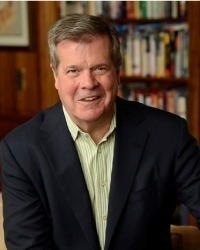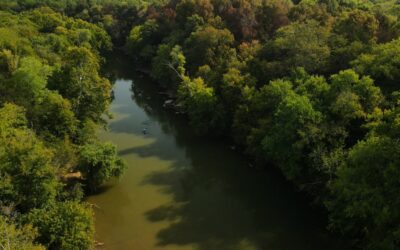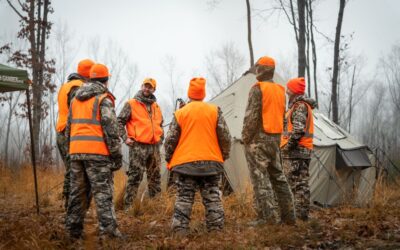The Race for Governor is in its final stretch. And Tennessee Wildlife Federation is bringing conservation to the conversation.
Tennessee’s wildlife and natural resources directly impact every Tennessean. For generations, our air, water, wildlife, and lands have shaped a way of life. They are the sources of tradition, recreational outlets, and major economic drivers for even the most remote counties in our state.
Yet, the candidates were surprisingly quiet when it came to the topic of conservation. We asked you to engage and share your concerns.
Nearly 200 questions were submitted to us for the Tennessee gubernatorial candidates Karl Dean and Bill Lee. We took the most common and pressing concerns directly to them.
The Federation is pleased to share Candidates Dean and Lee’s responses.
READ MORE>> Candidate Bill Lee answers your questions about conservation.
As the race nears its finish and early voting opens, we encourage all Tennesseans to consider your impact. Your vote sends a message about the topics most important to you. Make wildlife one of those priorities, and make Tennessee’s next governor work for you.
About Karl Dean
(Note: This biography was submitted to Tennessee Wildlife Federation by the campaign.)
Karl Dean led the city of Nashville to unprecedented economic prosperity that it’s still experiencing today. As mayor for eight years, he led the city through the Great Recession and the devastating floods in 2010, with Nashville coming out stronger as a result. Karl’s pragmatic approach to leadership focused on jobs, education and public safety.
He kept taxes low while making significant investments in public infrastructure, paving the way for new economic development in all parts of Davidson County. He made business recruitment and retention a priority. He increased funding for public schools and teacher pay, invested in after-school programs and brought more public school choices to Nashville. As mayor, Karl established Nashville’s Open Space Plan, which called for the city and private ownership to protect 22,000 acres of land over the next 25 years. His administration also acquired more than 4,500 acres of open space in Nashville, built 40 miles of greenways, and opened 25 miles of mountain bike trails. Karl’s experience makes him the right person to bring the same opportunities to every Tennessean.
Federation: What do you think are the most important conservation issues in Tennessee right now?
Dean: Our conservation efforts in Tennessee should focus on improving our public lands, building our economy in a way that does not have a negative impact on the environment, and working against invasive species in our state. We should preserve open space wherever we can. Tennessee is an incredibly beautiful state, as any candidate for statewide office can tell you, and we need to do everything we can to keep it that way.
Federation: Research has shown that approximately 2/3rds of all Tennesseans engage in some form of outdoor recreation, whether it be hunting, fishing, boating, hiking, camping, biking, wildlife watching, trail running, etc. If elected governor, please tell our audience about your beliefs and plans as to how your administration will protect and improve upon our lands, waters and wildlife, which are the foundation of Tennessee’s outdoor recreation opportunities?
Dean: Outdoor recreation is popular in Tennessee, and that means it’s a huge piece of our economy. I want to keep it that way. As governor, I will work to limit any threats to our outdoor recreation scene. Right now, that includes tackling the Asian carp invasion, limiting development that can be harmful to the environment and giving our public lands the proper resources to stay open and stay clean.
Federation: Previous gubernatorial administrations have produced rural development plans for our state. However, the significant economic value and impact of wildlife, water, and outdoor recreation in our rural communities has not been represented during the development of or in the final work products of these plans. First, do you believe that the value and positive impact of outdoor recreation and the wildlife, water and lands that provide these opportunities is important, and secondly, what will you do in your administration to ensure that the value of water, wildlife and outdoor recreation is a key factor when considering rural development during your administration?
Dean: Yes, I believe that the positive impact of outdoor recreation and wildlife is important. It’s important to ensure that any rural development does not hinder our outdoor recreation and resources in a major way. Outdoor activities are important to our economy, too. Supporting business and supporting conservation go hand in hand.
Federation: Water is arguably Tennessee’s most valued and important individual natural resource. Given the growth pressures being placed upon our waters across the state, and continued pressure from the regulated community to weaken our rules and laws designed to protect the health and availability of our water, how would your administration work to ensure the long-term health and availability of our water resources?
Dean: In most cases, regulation is necessary to protect our natural resources—especially waterways. I will work with my administration and the people of Tennessee to communicate how and why certain regulations will help our state and our economy in the long run.
Federation: The Great Smoky Mountains National Park is the most visited national park in the United States. Tennessee’s state park system is widely considered one of the best state park systems in the country. Our state forests, wildlife management areas, refuges, national forests, recreation areas and local parks provide millions of Tennesseans with outdoor recreational opportunities, and drive significant rural economic activity. What will your administration’s policy be towards our public lands?
Dean: I want to give our public lands the resources they need. Smoky Mountains National Park is extremely popular, and I want to return our state parks to the best in the nation as well. As mayor of Nashville, I invested $190 million in parks, which went towards projects like developing two riverfront parks, opening 25 miles of bike trails, building 40 miles of greenways, and preserving historical sites.
Federation: Non-native, exotic animals such as Asian carp, wild hogs, and insects such as the gypsy moth, emerald ash borer, hemlock woolly adelgid, are invasive and highly destructive of our native Tennessee plants and wildlife; creating significant negative economic impacts. Historically, agencies and efforts to address these invasive exotic pests have been chronically underfunded and highly variable in their results. What will your administration do to face and address these threats across our state?
Dean: I want to give our agencies adequate funding to approach these issues—particularly with Asian carp. The Asian carp invasion is detrimental to our waterways in West Tennessee, and it’s also a huge economic problem. We do not currently have the resources to fix anything, and I want to change that.
Federation: Where we locate development is critical for ensuring the integrity of our natural resources, containing state and municipal costs, and supporting Tennessee’s economy and brand, which relies on our rich natural environment. What steps would your administration take to make sure future development is properly located?
Dean: Maintaining Tennessee’s natural resources and natural beauty is a vital part of growing our state’s economy. Any development—especially in rural Tennessee—will be analyzed carefully for any negative impact on the environment. We have to get that right, because once open land is gone, it’s gone forever.
Federation: What process will you employ in choosing commissioners of key natural resource agencies, including the Department of Environment and Conservation; Wildlife Resources Agency, and Department of Agriculture? What qualities and/or characteristics will you be looking for in your appointments?
Dean: I will look primarily for candidates who have real experience in their fields and have an understanding of Tennessee’s needs. When it comes to natural resources, the problems facing Tennessee are not the same as the problems facing Kentucky or Montana, or any other state. We’ll need longtime Tennesseans to take charge of protecting Tennessee’s natural resources.




